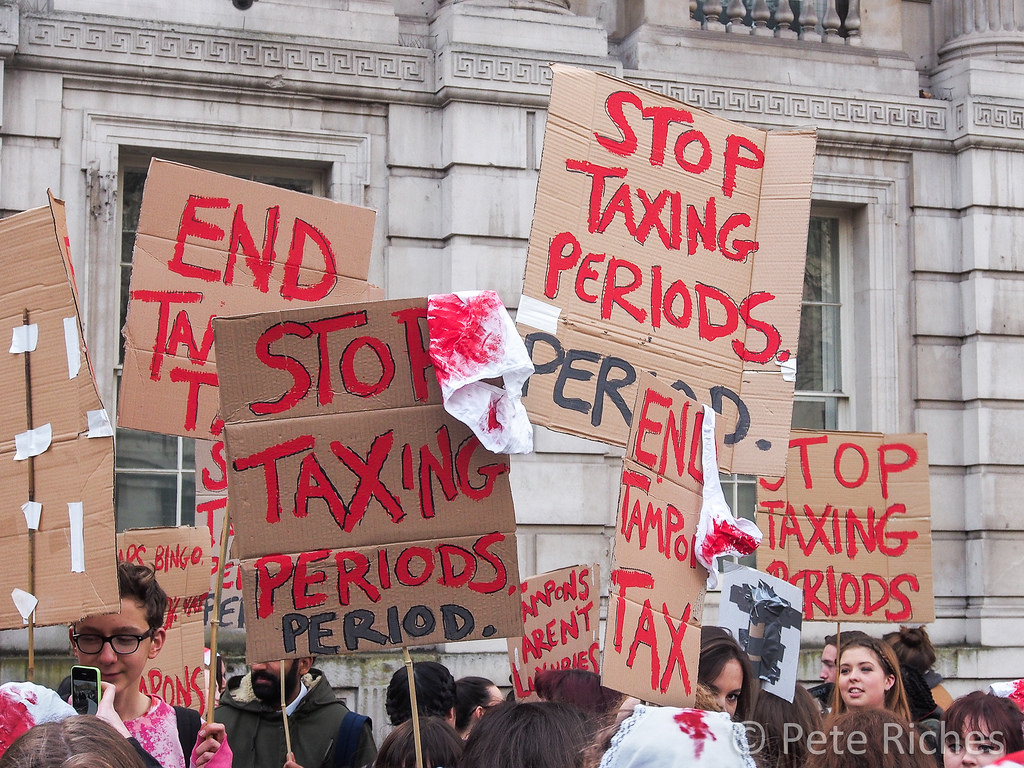
Reducing the cost and increasing the affordability of menstrual products is one obvious reason to scrap period taxes. However, there are other reasons - e.g. tackling period stigma - that are just as important.
Click on the "more" buttons to learn about arguments campaigns have successfully used to convince governments to reduce or eliminate period taxes.

Campaigns against unfair period taxes typically trigger broader conversations about societal attitudes towards menstruation. It will therefore also help to tackle the persisting stigma surrounding menstruation. It is precisely because the issue of menstruation has been stigmatised and silenced for so long that unfair and discriminatory practices – including unfair period taxes – still exist today.
Campaign insight: We found that tax campaigns that also talk about the broader issues of period stigma, taboos and gender equality tend to be more successful overall, because they lead to a much wider conversation.

Women and girls need menstrual products to be able to manage their periods safely, hygienically and with dignity. Surprisingly, menstrual products are often not considered basic necessities and thus are not subject to a reduced tax rate or exemption. They are often taxed at the same standard rate as more luxurious items.
Campaign insight: Campaigners successfully made the point that not categorising menstrual products as basic necessities is both unfair and absurd by comparing them to some of the more luxurious goods that do enjoy this preferential status. In Germany, campaigners used the examples of oil paintings, truffles and caviar. This made for great headlines in the media and helped to activate a lot more people for the cause.

Menstruation is a physical function, not a choice. Period taxes are discriminatory because they effectively tax women and girls who have no choice but to buy menstrual products because they menstruate.
Campaigns to remove or reduce period taxes will inevitably touch on issues of discrimination within laws, public policies and decision-making processes and trigger broader conversations about gender equality.
Campaign insight: To be successful, campaigns on period taxes need the support of women and men. Hence it is extremely important to consciously involve men in the campaign and to position period taxes more broadly as an issue of justice and gender equality, rather than only a ‘women’s issue’!

Menstrual products should be affordable for every woman and girl, and reducing or scrapping period taxes can help to improve their affordability. If your main campaign goal is to improve affordability for consumers, it is critical that you understand the relevant tax system and the supply chain of menstrual products in detail.
Unfortunately, experience shows that the removal or reduction of period taxes does not automatically result in lower prices for consumers. Have a close look at your local tax system and assess which other actors along the supply chain (e.g. manufacturers, retailers, shippers, consumer authorities, relevant ministries) need to be on board to ensure that tax reductions are passed on to consumers. We provide more information in the Research Report.
Campaign insight: Make the topic of prices and taxes personal by sharing stories from women and girls who are not able to afford products, and use period cost calculators to show how small costs add up over a lifetime.

Explore our case studies from period tax campaigns around the world to learn about the dos and don’ts of campaigning against period taxes!
Zum Beispiel Video Nr. 1 für Why Scrap Taxes Subpage
Explore our case studies from period tax campaigns around the world to learn about the dos and don’ts of campaigning against period taxes!